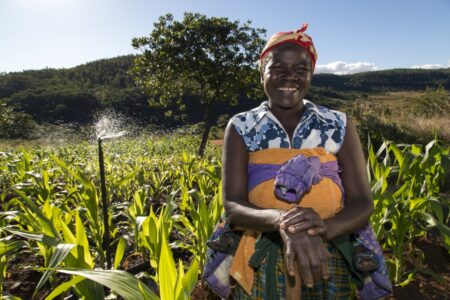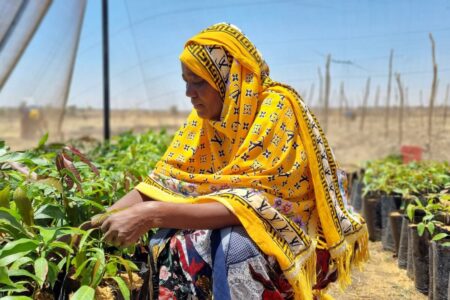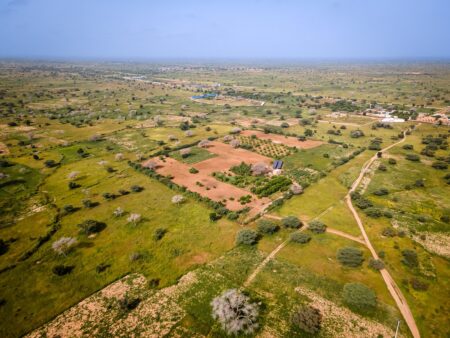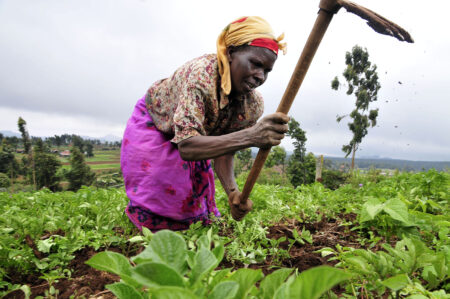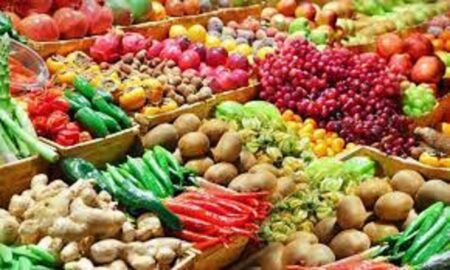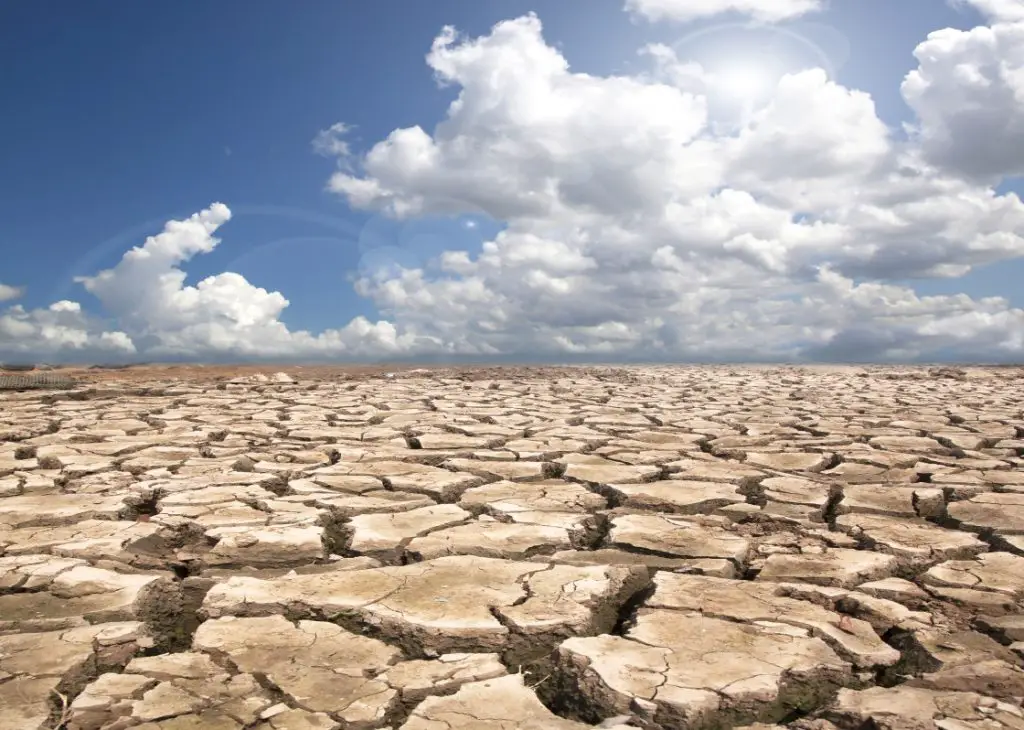- Africa’s new dawn: the rising role of digital and AI in agriculture
- Can Dangote Refinery Transform Africa Energy Ambition
- Gallup Survey: 80 per cent of Kenyan Workers Are Disengaged and Seek New Opportunities
- Madagascar Man Freed from 5KG Tumor After 15-Year Struggle
- How women in Africa are perceived and treated
- Sugar consumption in Kenya to Increase to 1.23 Million Tonnes
- Can Somalia and Turkey Oil deal Bring Change in Somaliland
- Remittances to Kenya dropped to $371.6 million in June, marking a six month low
Browsing: Agriculture in Africa
- Africa’s food and agriculture market could reach $1 trillion in 2030 from $280 billion in 2023, with over $60 billion spent on food imports yearly.
- Access to credit poses a significant barrier to private sector investment in Africa’s agriculture sector
- Food and Agriculture Organization (FAO) highlights that around 30 to 40 per cent of food produced in Africa is lost before it reaches consumers.
Africa is a sleeping giant, at least from the agricultural sector. The region’s food and agriculture market could reach $1 trillion from $280 billion in 2023, with over $60 billion spent on food imports yearly.
The numbers in the latter are self-explanatory agriculture in Africa is not only a staple economic activity for most of the population but the region at large.
However, the sector is faced with both promising leads of growth but, at the same time, hurdles, including lack of proper funding leading to …
- Foodtech startups are leading a movement that aims to enhance food security and transform African agriculture into a model of economic viability and sustainability.
- Nile, a business-to-business (B2B) marketplace seeks to modernise agricultural trade by enabling direct connections between farmers and buyers.
- Another entity, Sand to Green, employs advanced agroforestry practices and technology to transform arid desert lands into fertile agricultural zones.
In the face of a future where 140 million people in Africa confront acute food insecurity, the emergence of foodtech startups across the continent is starting a new phase in agricultural practices and food production.
Armed with innovative technologies and visionary approaches, these startups are leading a movement that aims to enhance food security and transform African agriculture into a model of economic viability and sustainability.
A trio of visionaries from Amazon, JP Morgan and Luno have established a digital insurance platform Nile, a business-to-business (B2B) marketplace that …
- Tanzania’s agriculture sector holds one-third of the country’s GDP and employs 75 per cent of the population.
- The government target is to raise crop exports by 48 per cent to $3.5 billion by 2025 as food shipments rise to overtake the value that Tanzania earns from its traditional export crops.
- Tanzania earned over $1.2 billion with the export of agricultural commodities in 2020.
An outlook into Tanzania’s agriculture sector
Numbers show that farmers are Tanzania’s most essential workforce. Tanzania’s agriculture sector holds one-third of the country’s GDP and employs 75 per cent of the population.
Available data shows that approximately 80 per cent of Tanzania’s exports are agricultural products such as coffee, cotton, sisal, tea, cashew nuts and tobacco, to mention a few.
From 2014 to 2020, the above crops benefitted the nation’s export baskets. Tanzania earned over $1.2 billion with the export of agricultural commodities in 2020, according to …
- IFAD together with governments, partners and stakeholders are exploring solutions to optimize the contribution of agriculture to nutrition in food systems.
- Africa still experiences a malnutrition burden among children aged under 5 years.
- The continent’s food security challenges are compounded by the war in Ukraine, by supply chain shortages, conflict, and drought.
A regional knowledge and experience-sharing workshop that addresses nutrition, rural development and food system transformation began today in Abidjan, Côte d’Ivoire. Improving food and nutrition security in West and Central Africa (WCA) is crucial. It is estimated that 29.8 per cent of the population of West Africa and 13.9 per cent of the population of Central Africa are undernourished.
For three days, representatives of rural development projects co-financed by the International Fund for Agricultural Development (IFAD) together with governments, partners and other stakeholders will explore solutions to optimize the contribution of agriculture to nutrition in the context …
- Agribusiness including the entire agriculture and livestock sector represents approximately 17 per cent of Senegal’s GDP.
- The agriculture sector is currently employing 70 per cent of the population.
- Food imports, especially rice, which is the population’s main staple crop with imports accounting for 65 percent of the national consumption.
The African Development Bank (AfDB) Group has approved a $95 million (€86.89 million) loan to Senegal to develop an agribusiness processing zone in the north of the country.
The Bank’s contribution accounts for 30.7 per cent of the estimated €283.05 million total project cost. The Islamic Development Bank (21.2 per cent), the West African Development Bank (15.9 per cent), Sponsor Dette (19.3 per cent) and Sponsor Equity (7.7 per cent) are the other contributors to the implementation of ‘Projet Agropole Nord‘, in English, ‘Agricultural Hub North Project’.
Agribusiness plant to enhance forestry, and fisheries segments
The project is intended …
The insurance sector has progressively curated products to cushion the different aspects of living, individuals and corporations. As such, agricultural insurance has been identified as an essential tool in assisting farmers, herders, and governments to mitigate some negative financial impacts of adverse natural events. Many countries have used insurance to help manage agricultural risks. The usefulness of agricultural insurance in risk mitigation is not in question.…
Governments can play a crucial role in enhancing agricultural productivity in Africa for economic growth. Individual nations can accomplish this by establishing policy environments to promote agricultural investment, including providing tax incentives and subsidies to producers. Governments can also prioritize agricultural development in their national budgets by allocating a more significant proportion of their resources to the sector.…
- Exports expanded from N$400 in 2020 to N$1.4 billion in 2022.
- The fact that Namibia is able to export to countries in Europe highlights the potential for Africa to expand its trade relationships with other regions of the world.
- This diversification is important for SADC region countries since it reduces reliance on a single commodity.
Namibia’s fruits and nuts industry has seen significant growth in recent years, with exports worth over N$1.4 billion between November 2021 and November 2022. This is a significant figure compared to imports, which were just shy of N$400 million. This export bill, although dominated by grape exports, shows that Namibia has a good market in Europe, especially in the United Kingdom, Germany, and The Netherlands.
Grapes and dates are considered the gold of the southern part of the country. However, there have been claims that producers are exploiting labor. Workers have constantly complained of late …
- Kenya is set to host the 6th edition of Africa Agri Expo in February 2023 amidst dwindling growth in the Agricultural sector.
- The expo is aimed at bringing the entire agricultural value chain under one roof and open up a vibrant platform for agribusiness experts.
- Some of the key areas of focus during the event include irrigation, crop protection, technology, food safety & security, mechanisation, investment opportunities as well as government policies.
Kenya is set to host the 6th edition of Africa Agri Expo in February 2023 amidst dwindling growth in the agricultural sector.
The expo which has been endorsed by the Ministry of Agriculture and Livestock Development is aimed at bringing the entire agricultural value chain under one roof and open up a vibrant platform for agribusiness experts, top global companies, key policymakers and other stakeholders to explore the commercial opportunities in the continent through effective meetings and networking …
Policymakers must advocate for pooling resources to support the most affected, particularly in Africa. They can financially support and share land restoration and climate adaptation technologies. Collaborations to expand inclusion that can attain a new paradigm in climate change mitigation.
The leaders of the major polluting nations and donor countries, as well as the leaders of African nations—must commit to implementing policies, allocating resources, and taking the necessary actions to address the deteriorating climate situations globally.…





